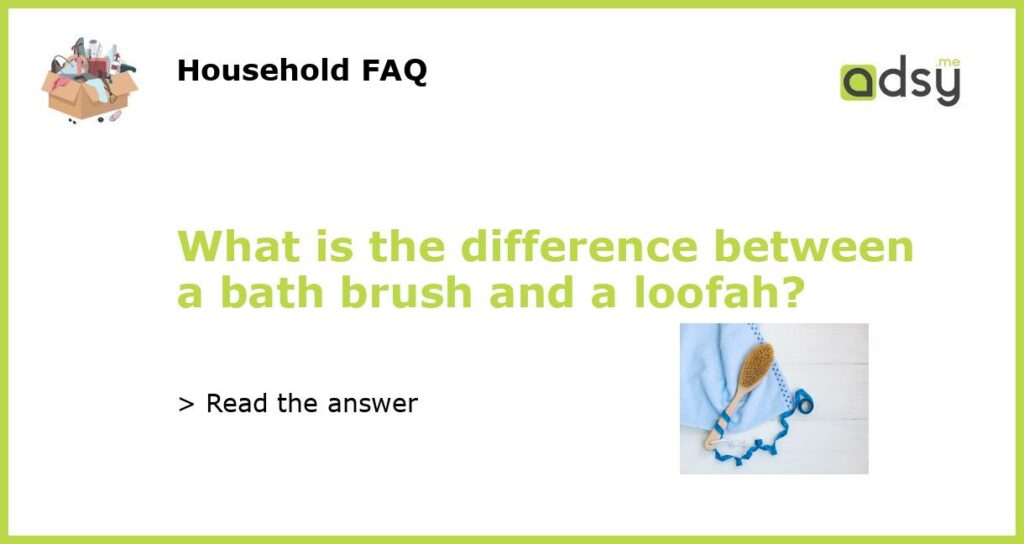The purpose of bath brushes and loofahs
Before diving into the differences, it’s important to understand the purpose of both bath brushes and loofahs. At their core, both of these tools are designed to help exfoliate the skin and remove dead skin cells, leading to a smoother, brighter appearance. Bath brushes, however, are typically used to exfoliate and cleanse larger areas of the body, while loofahs are better suited for more precise areas like the face and neck.
The differences in texture and material
One of the most significant differences between bath brushes and loofahs is in their texture and material. Bath brushes are typically made from synthetic or natural bristles, which can be quite stiff and abrasive. This makes them ideal for scrubbing away at tough skin, but can be irritating for those with sensitive skin. On the other hand, loofahs are made from natural sponge-like material that is considerably softer and gentler on the skin.
The differences in maintenance and longevity
Another important point of comparison between bath brushes and loofahs is maintenance and longevity. Bath brushes are typically more durable and may last for several months with proper care. They can be easily washed with soap and water and require minimal maintenance. Loofahs, on the other hand, tend to wear out more quickly and should be replaced every few weeks. They also require more frequent cleaning to prevent the buildup of bacteria and other microbes.
The differences in cost
When it comes to cost, bath brushes and loofahs are fairly similar. Both tools are relatively affordable, with prices ranging from a few dollars to upwards of $20 depending on the brand and materials used. That being said, bath brushes are typically a bit more expensive, especially when made from high-quality natural bristles.
The verdict: which tool is best?
Ultimately, the choice between a bath brush and a loofah comes down to personal preference and skin type. Those with thick, tough skin may prefer the more abrasive texture and durability of a bath brush, while those with sensitive skin may opt for a softer, more gentle loofah. It’s also worth considering your skincare goals – if you’re looking to improve the appearance of large areas of skin like your back or legs, a bath brush may be a better choice. If, however, you’re looking for a tool that can help you gently exfoliate the delicate skin on your face or neck, a loofah may be a better choice.






